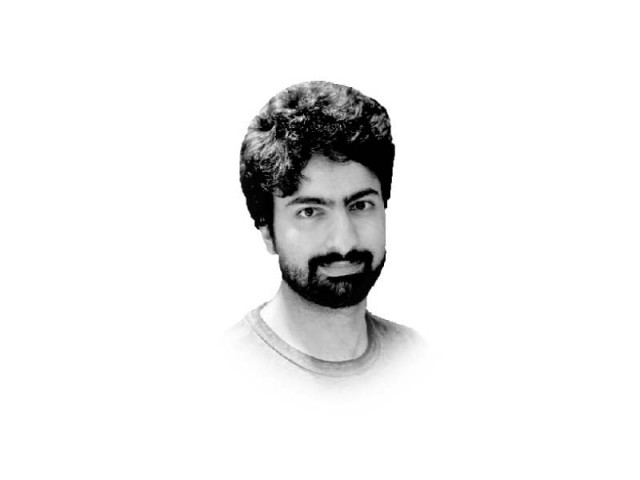Team of rivals
This may not be the perfect opposition. But it is the best we have at the moment — we will take it

Let’s be honest, if you crave liberal democracy, it is hard to have sympathy for the key players in the Pakistan Democratic Movement (PDM).
Its president, Fazalur Rahman, is no champion of progressive values. When he took to the streets in his ‘Azadi March’ last year, he claimed he was protesting against those who set Aasia Bibi free. Maintaining a consistent trend of problematic religious views in line with his past. The Maulana enjoys injecting Islamic fundamentalism into the political discourse of a country already inebriated with it.
His method of opposition to the PTI has been tasteless. Packaged to incite religious discord, it peaked in 2013 when he claimed voting for Imran Khan was haram. If we go back further, we glimpse him as a champion of the infamous Hasba legislation in Khyber-Pakhtunkhwa, and as an opponent of any reforms directed towards empowering women.
The other players in this movement do not evoke strong sympathy either.
Both the PML-N and PPP have been functioning as dynastic political parties for far too long. Instead of genuine political workers rising up the ranks, the parties are inherited by the progeny of Sharif and Bhutto.
It is also true, as their critics point out, that for all their bluster against the establishment today, both parties have been trying to work with the establishment over the past few years. Their support for the bill extending the army chief’s tenure showed a strategy of appeasement rather than antagonism.
We can also accept that the catalyst for both these parties mobilising under the banner of the PDM is self-interest rather than liberal democracy. As they face the burgeoning wrath of National Accountability Bureau (NAB), the PDM is an attempt to combine forces and mount a counterattack.
I also struggle with supporting the end goal of the PDM. For a democracy as fragile as ours, it is essential for the PTI to complete its term in government. To oust the PTI government would be no victory for those of us who crave democratic stability. Our historical landscape is littered with disintegrating democratic mandates. Democracy’s survival requires uninterrupted periods of democracy. Another collapse of a government does not allow that to happen.
With all this said, it appears that there is a strong case against supporting the PDM. But that would miss the perpetual elephant in Pakistan’s politics: democracy cannot take root if an unelected institution keeps meddling in the democratic system.
So, despite having little sympathy for the key players in the PDM, and despite knowing their flaws, I still believe that those who wish to see Pakistan become a strong democracy should support the PDM for three main reasons.
First, we have to accept that democracy is not about finding the perfect candidate, but rather, the right compromise. The PDM is not a coalition of perfect politicians, but it is a grudging compromise against the civil-military circus that we now call a hybrid regime. Many of our country’s problems flow from our love affair with hybrid regimes that it has now become impossible to focus on anything else without addressing it first. The PDM is a necessary dissenting voice against the establishment’s role in politics. Necessary because it signals to them that the street power that brought down Musharraf’s regime still exists. The establishment should not forget that. If this voice of dissent is good enough to move the needle even a fraction of an inch towards civilian supremacy — we will take it. We will take the small victories we can get.
Second, this mobilisation signals to the government that it must do better. Had the PTI been doing a good job over the last two years then there wouldn’t be much to bring these parties together. However, with rising food prices, stifling of free expression, and disappearing journalists, we need this sort of movement to show the government that its actions will be held to account. It makes the government circumspect. By highlighting that the government cannot throw around the label of traitor so casually the PDM keeps a check on the abuse of power. This is exactly what a democratically elected opposition is supposed to do.
Third, let’s accept for a second that this entire movement is motivated by the need of the PML-N and the PPP to get out from under the NAB’s radar. If it achieves nothing else but a reform of the NAB Ordinance, then this movement is something we can get behind. The NAB Ordinance is nothing more than a tool for political victimisation. An insult to the right to fair trial. No democracy can function if the government in power can use instruments like NAB to go after the opposition while shielding its own wrongdoing.
For these three reasons, I believe the PDM deserves our support. Conditional upon them maintaining a principled stance in favour of civilian supremacy. We can support these parties, which have at different points opposed progressive democratic values, because we believe a greater threat of establishment dominance looms.
This may not be the perfect solution. This may not be the perfect opposition. But it is the best we have at the moment — we will take it.
Published in The Express Tribune, October 20th, 2020.
Like Opinion & Editorial on Facebook, follow @ETOpEd on Twitter to receive all updates on all our daily pieces.














COMMENTS
Comments are moderated and generally will be posted if they are on-topic and not abusive.
For more information, please see our Comments FAQ